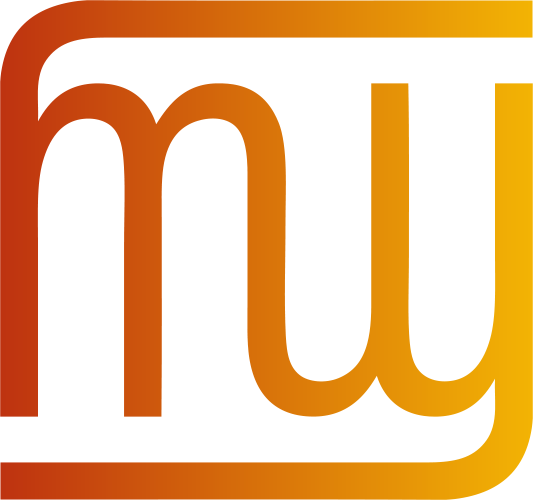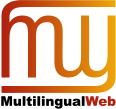 The W3C Internationalization (I18n) Activity works with W3C working groups and liaises with other organizations to ensure Web technologies work for everyone, regardless of their language, script, or culture.
The W3C Internationalization (I18n) Activity works with W3C working groups and liaises with other organizations to ensure Web technologies work for everyone, regardless of their language, script, or culture.
From this page you can find articles and other resources about Web internationalization, and information about the groups that make up the Activity.
Read also about opportunities to participate and fund work via the new Sponsorship Program.
What the W3C Internationalization Activity does
Selected quick links
Selected quick links
Selected quick links
New translations into Russian and Ukrainian
Ukrainian:
Налаштування параметру HTTP charset (Setting the HTTP charset parameter)
Налаштування charset інформації в .htaccess (Setting charset information in .htaccess)
Перевірка кодування символів використовуючи валідатор (Checking the character encoding using the validator)
HTML, XHTML, XML та Керуючі Коди (HTML, XHTML, XML and Control Codes)
Хто використовує Unicode? (Who uses Unicode?)
Пропущені символи і гліфи (Missing characters and glyphs)
Russian:
Настройка параметра HTTP charset (Setting the HTTP charset parameter)
Настройка charset информации в .htaccess (Setting charset information in .htaccess)
Проверка кодировки символов используя валидатор (Checking the character encoding using the validator)
HTML, XHTML, XML и Управляющие Коды (HTML, XHTML, XML and Control Codes)
Кто использует Unicode? (Who uses Unicode?)
Пропущенные символы и глифы (Missing characters and glyphs)
These articles were translated thanks to Alexandr Shlapak.
New translations into Spanish
Uso de los elementos b e i (Using b and i elements)
Uso de controles Unicode para texto bidi (Changing (X)HTML page encoding to UTF-8)
These articles were translated into Spanish thanks to the Spanish Translation Team, Trusted Translations, Inc.
New translations into Hungarian
Dátum formátumok (Date formats)
A képernyő megjelenítési módjai (Display capabilities)
These articles were translated into Hungarian thanks to Zsolt Bikadi.
New translations into German
Accept-Language für Regionaleinstellungen verwenden (Accept-Language used for locale setting)
Änderung der Zeichencodierung einer (X)HTML-Seite auf UTF-8 (Changing (X)HTML page encoding to UTF-8)
HTTP-Header überprüfen (Checking HTTP Headers)
Kennzeichnung von Text mit keiner Sprache (Tagging text with no language)
Schreibrichtungen und Sprachen (Script direction and languages)
Warum sollte man Sprachattribute verwenden? (Why use the language attribute?)
Einstellung des HTTP-charset-Parameters (Setting the HTTP charset parameter)
These articles were translated into German thanks to Gunnar Bittersmann.
Updated article: Why use the language attribute?
Links were updated in the Accessibility and Font Selection sections, and in the Further Reading section.
The paragraph in the Page Rendering section that read “This is not implemented in the current version of Microsoft Internet Explorer, but does work in other browsers such as Mozilla” was removed, since this feature has been supported in IE since version 8 and for longer in the other major browsers.
The translations were updated with the same changes.
MultilingualWeb Pisa report now available
A report summarising the MultilingualWeb workshop in Pisa is now available from the MultilingualWeb site. Alongside the summaries are links to slides, video recordings, and the IRC log for each speaker and the discussion sessions.
Entitled “Content for the Multilingual Web”, the workshop surveyed and shared information about currently available best practices and standards that can help content creators and localizers address the needs of the multilingual Web. Attendees also heard about gaps that need to be addressed, and enjoyed opportunities to network and share information between the various different communities involved in enabling the multilingual Web.
The page dedicated to outcomes of the Pisa workshop also points to the program and items in the social media related to the workshop.
Preparations have now begun for the next workshop, to be held in Limerick, Ireland, on September 21-22. It will be co-located with the 16th Annual LRC Conference. See the Call for Participation to register.
W3C Workshop, Call for Participation: A Local Focus for the Multilingual Web

21-22 September 2011, Limerick, Ireland. Co-located with the 16th Annual LRC Conference and hosted by the University of Limerick.
The MultilingualWeb project is looking at best practices and standards related to all aspects of creating, localizing and deploying the Web multilingually. The project aims to raise the visibility of existing best practices and standards and identify gaps. The core vehicle for this is a series of four events which are planned for the coming two years.
After two highly successful workshops in Madrid and Pisa, this workshop will continue to investigate currently available best practices and standards aimed at helping content creators, localizers, tools developers, and others meet the challenges of the multilingual Web.
Participation is free. We welcome participation from both speakers and non-speaking attendees. For more information, see the Call for Participation
MultilingualWeb Pisa slides, video recordings, and IRC notes now available
Slides, video recordings of speakers and IRC notes for the MultilingualWeb workshop in Pisa are now available from the MultilingualWeb site. There are also pointers to blog posts, tweets and photos related to the workshop.
Entitled “Content for the Multilingual Web”, the workshop surveyed and shared information about currently available best practices and standards that can help content creators and localizers address the needs of the multilingual Web, including the Semantic Web. Attendees also heard about gaps that need to be addressed, and enjoyed opportunities to network and share information between the various different communities involved in enabling the multilingual Web. Just over a hundred people attended.
Work is under way on a summary report for the workshop, which will be announced in due course.
Building on the success of the Madrid and Pisa workshops, preparations have now begun for the next workshop, to be held in Limerick, Ireland, in September 2011. A Call for Participation will be issued soon.
Thanks to VideoLectures for hosting the videos, and CNR for the recording.
New translations into German
Darstellungsvermögen (Display capabilities)
Datum und Uhrzeit (Dates and Time)
Datumsformate (Date formats)
These articles were translated into German thanks to Steffen Herkert, Nico Kutscherauer, and Tobias Klevenz (data2type GmbH).
New translations into Russian and Ukrainian
Ukrainian:
byte-order mark (BOM) в HTML (The byte-order mark (BOM) in HTML)
Нормалізація в HTML і CSS (Normalization in HTML and CSS)
Символи або розмітка? (Characters or markup?)
Заміна кодування (X)HTML сторінки на UTF-8 (Changing (X)HTML page encoding to UTF-8)
Використання екранованих символів в розмітці і CSS (Using character escapes in markup and CSS)
Russian:
byte-order mark (BOM) в HTML (The byte-order mark (BOM) in HTML)
Нормализация в HTML и CSS (Normalization in HTML and CSS)
Символы или разметка? (Characters or markup?)
Замена кодировки (X)HTML страницы на UTF-8 (Changing (X)HTML page encoding to UTF-8)
Использование экранированных символов в разметке и CSS (Using character escapes in markup and CSS)
These articles were translated thanks to Alexandr Shlapak.